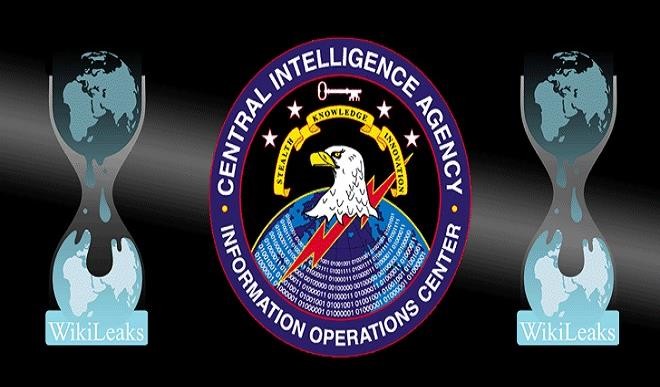The revelation of CIA hacking tools
The reported revelation of the cyber weapon tools of the United States (US) Central Intelligence Agency (CIA) as detailed by WikiLeaks last week has so many angles to it that the event easily staggers my imagination. I did not know when I asked myself “How could this happen,” in an apparent awe of the situation. […]


The reported revelation of the cyber weapon tools of the United States (US) Central Intelligence Agency (CIA) as detailed by WikiLeaks last week has so many angles to it that the event easily staggers my imagination. I did not know when I asked myself “How could this happen,” in an apparent awe of the situation. I was shocked because of my appreciation for the technological knowhow of the US. I mean, these folks developed the Internet and are the original inventors of virtually any cool technology out there, ahead of copycats in other countries.
Beginning on Tuesday 7 March 2017, WikiLeaks started its new series of leaks on the CIA, which WikiLeaks refers to as “Vault 7,” for convenience of reference. The essence of what I write in this article is from WikiLeaks as reported by The Wall Street Journal, New York Times, The Vanguard (UK), and other news outlets. Vault 7 is considered by WikiLeaks to be the largest ever publication of confidential documents on the CIA. The first full part of the series, which is dubbed “Year Zero,” reportedly comprises of 8,761 documents and files from an isolated, high-security network situated inside the CIA’s Center for Cyber Intelligence in Langley, Virginia, USA. It follows an introductory disclosure last month of CIA targeting French political parties and candidates in the lead up to the 2012 presidential election.
Some of the hacking tools revealed include the development, testing, and support of all backdoors, exploits, malicious payloads, trojans, viruses, and many other kinds of malware that facilitate the agency’s covert operations world-wide. The CIA software reportedly can infest smart TVs, transforming them into covert microphones. The attack against Samsung smart TVs, which was developed in cooperation with the United Kingdom’s MI5/BTS, was reported. After infestation, Weeping Angel – which is the code name of the CIA tool – places a target TV in a ‘Fake-Off’ mode, so that you the owner falsely believe the TV is off when it is on. In ‘Fake-Off’ mode, the TV operates as a bug, recording conversations in the room and sending them over the Internet to a covert CIA server.
According to WikiLeaks, CIA was also looking into infecting the vehicle control systems used by modern cars and trucks, the purpose of which, according to Vanguard, could be to permit the CIA to engage in nearly undetectable assassinations. Numerous attacks to remotely hack and control popular smart phones are also reported. “Infected phones can be instructed to send the CIA the user’s geolocation, audio and text communications as well as covertly activate the phone’s camera and microphone.” A specialized unit in the CIA’s Mobile Development Branch is said to produce malware to infest, control and exfiltrate data from iPhones and other Apple products running iOS, such as iPads. A disproportionate focus is reportedly placed on Apple’s iOS perhaps because of the popularity of iPhone among social, political, diplomatic, and business elites.
A similar CIA unit reportedly targets Google’s Android, which is used to run the majority of the world’s smart phones including Samsung, HTC, Huawei, and Sony. Of course, the CIA reportedly has techniques to bypass the encryption of WhatsApp, Signal, Telegram, and Weibo, to name a few, by “hacking the smart phones that they run on and collecting audio and message traffic before encryption is applied.” As you would expect, the CIA reportedly has also developed automated multi-platform (that is, operating system) malware attack and control systems covering Windows, Mac OS X, Solaris, Linux, and so on. So, CIA’s arsenal for cyberwarfare is quite extensive.
If you take racism, bigotry, and apparent preferential treatment of certain countries out of the equation, the US is actually an OK country when compared to most countries of the world. It is a country of systems; a country where things really work as they should. It is a country where if you provide an input, I can predict your output to a very high degree of certainty. The US is also a country of justice; meaning that if you are caught violating the laws of the land, you will face the music – no matter who you are in the society. Most countries of the world are not like that – even some of the technologically developed countries. In many countries of the world, particularly in Africa, Asia, and South America, there are so many undercurrents, even in simple day-to-day events, that make predicting the outcome from an input to be excruciatingly difficult.
If the US is such a great country, why should anyone be concerned that it has such a formidable cyber footprint world while? After all virtually all countries have spies. Also, some argue that the CIA’s spy work is done to keep the world safe; which should be a good thing. Unfortunately, politics gets into the whole issue. The bottom line is that your country will be okay with CIA’s cyber weapons if it is an ally of the US, but will be highly irritated otherwise.
